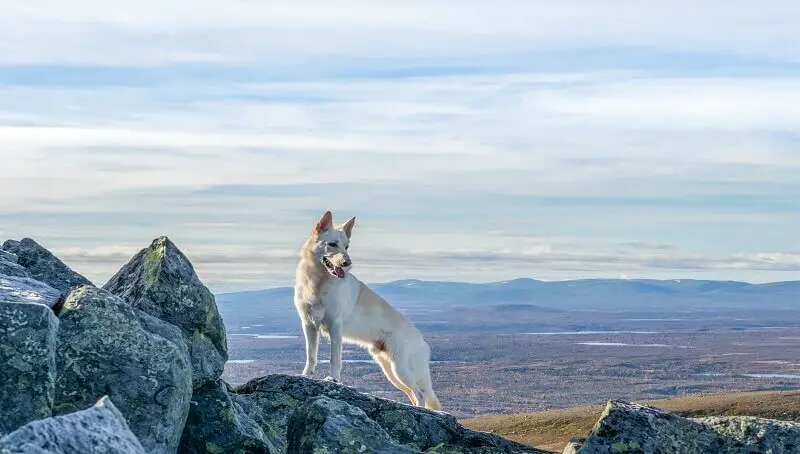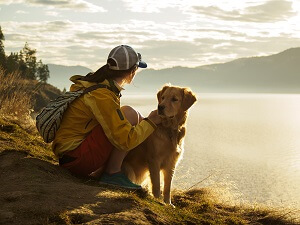
Owls Or Little Owls As Pets – All You Need To Know
January 24, 2023
Calico Cat – All You Need To Know
January 25, 2023
It is not uncommon for some people to experience height sickness, dizziness, or even nausea when changing altitude. But how do our pets, dogs, and cats react to this change? Can dogs and cats suffer from altitude sickness?
Fortunately, many pets seem to be doing well after spending some time at high altitudes. But others, won’t.
If you are a pet lover who likes to take your furry companion everywhere no matter where you go, then it is very important to have one with similar traits.
For example, if you are a hiking enthusiast or a recreational climber, it is a good idea to have a dog with the same level of energy and physical abilities.
Many pets like to spend time outside. But in order to have a great time out, you need to be sure that your pet is safe, and that it can follow some orders and not run away. They must be receptive to precarious situations, such as encounters with wild animals or encounter with toxic plants.
Are animals affected by altitude?
You might also like my articles about:
- Winter dog walking tips
- Effective tips to stop a dog from leash pulling
- What do cats hate to walk on
In short, yes. Animals such as dogs and cats are sensitive to the harmful effects of high heights. Symptoms may include, in addition to the above, vomiting, headaches, and in extreme cases, fluid buildup in the lungs and brain, especially if they are active when they reach high altitudes.
What is interesting is that animals have often been studied to help understand the physiological reactions they have at high altitudes. We know quite a lot about the harmful effects of high altitudes on some animals and the effects seem to be very similar to what people experience in similar situations.
But before anyone becomes alarmed by this, it is worth noting that these effects begin only above 2,400 m altitude. Most of the settlements so high have a fairly small population so, the good news is that very few pets are affected by the high altitude.
What are some preliminary precautions a person can take if they intend to take their pet to a high-altitude area?
 General precautions include limiting physical activity and close supervision of your company animals. If they seem to be getting tired easily, making excessive noise, are less interested in food, and/or vomiting, these are signs that the height, where they are, is affecting them and possibly suffering from altitude sickness.
General precautions include limiting physical activity and close supervision of your company animals. If they seem to be getting tired easily, making excessive noise, are less interested in food, and/or vomiting, these are signs that the height, where they are, is affecting them and possibly suffering from altitude sickness.
Reduce their activity, give them more water to drink, and gradually move to lower altitudes in the shortest possible time. Giving up dry dog food is important to make sure they are getting enough hydration. Dogs and cats don’t always drink water in response to dehydration, so feeding wet food is very important.
If you move to a city at a high altitude, your pet may be able to experience these symptoms in the first few months in the new location. Be gentle with him. Don’t force him to do more work than he can tolerate. Over time, his blood will adapt to the higher altitude and use oxygen at lower concentrations in the air more efficiently.
When you can say that your pet does not adapt to high altitude areas?
If after moving to a high altitude, your pet does not return to its usual activity level, several things may happen. Be careful of excessive panting or a weak cough. These are signs of heart disease in dogs and cats, and animals with pre-existing heart disease may get worse at high altitudes.
Sometimes, at lower altitudes, these signs of heart disease may not be obvious, but when they reach high altitudes, they can get worse enough for owners to notice. A mild cough, especially at night, is a sign of heart disease and requires veterinary care.
If your company animal already has breathing problems, bronchial asthma, etc., moving to a higher altitude place is an absolute no. Are there things you can do to help them adapt?
It is not totally contraindicated, but it may be necessary to decrease the activity and then gradually increase it, depending on how well they do when their activity intensifies.
Final words!
Be sure to talk to your veterinarian about your active lifestyle or about the new change. He is able to give you consent for your pet to cope with hiking or climbing the mountain, or for drastically moving at a higher altitude.
